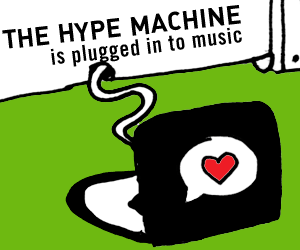In the ever-evolving world of education, where info flows perfectly and What does Thanksgiving mean to you? Why? Do you think we should do more as a country to honor the contributions of Native Americans? Why or why not? accessibility to knowledge is only a click away, student-driven encyclopedias are becoming a dynamic device in the understanding procedure.

These systems not only give trainees with a database of details yet additionally motivate them to contribute, modify, and curate web content, fostering a joint and interactive learning setting.
As educational paradigms shift in the direction of even more participatory and comprehensive versions, the idea of student-driven encyclopedias embodies this makeover. These platforms encourage students to come to be active individuals in understanding creation, bridging the space between typical book knowing and contemporary electronic sources.
The Principle of Student-Driven Encyclopedias
Student-driven encyclopedias are digital platforms where pupils collectively collect, verify, and disseminate info on a vast selection of subjects. Unlike traditional encyclopedias, which are frequently written by experts, these systems utilize the joint initiatives of pupils to produce an extensive body of knowledge.

At their core, student-driven encyclopedias are made to grow important thinking, research study abilities, and digital proficiency amongst students. By participating in the process of content production, pupils learn to browse and assess details seriously, skills that are crucial in today’s information-rich society.
Furthermore, these systems work as an area for trainees to explore their passions and share their competence. This autonomous strategy to expertise development guarantees that a diverse series of perspectives and voices are represented, enhancing the finding out experience for all participants.
- Students get hands-on experience in research and material creation.
- Encourages partnership and peer interaction.
- Advertises a much deeper understanding of topic.
- Fosters inclusivity and variety in expertise representation.
Essentially, student-driven encyclopedias transform pupils from passive recipients of details into active factors, instilling a sense of possession and obligation in their academic trip.
Advantages of Student-Driven Encyclopedias
One of the primary benefits of student-driven encyclopedias is the advancement of necessary 21st-century abilities. As trainees participate in the process of content creation, they refine their essential reasoning, digital literacy, and communication abilities, every one of which are critical in today’s interconnected world.
Additionally, these systems encourage a collaborative learning setting, where pupils can interact to validate details, dispute various perspectives, and co-edit posts. This peer-to-peer interaction not only enhances learning results but additionally cultivates a sense of area and mutual respect amongst trainees.
Moreover, student-driven encyclopedias provide a system for showcasing pupil job. As students contribute to the encyclopedia, they construct a profile of their research study and writing, which can be indispensable for further scholastic and specialist pursuits.
Difficulties and Limitations

Regardless of the various benefits, student-driven encyclopedias also encounter particular challenges. Guaranteeing the precision and dependability of info is extremely important, as these platforms rely upon contributions from pupils who might not yet possess expert-level knowledge.
- Keeping material quality and precision.
- Offering sufficient guidance and advice.
- Guaranteeing fair access and inclusivity.
To alleviate these difficulties, numerous student-driven encyclopedias execute a system of checks and equilibriums, where web content is examined by teachers or professionals before publication. This ensures that the info offered is both exact and credible, maintaining the stability of the platform.
The Future of Student-Driven Encyclopedias
As technology continues to development and the landscape of education progresses, the potential for student-driven encyclopedias is vast. These platforms have the capability to not only complement standard instructional resources however likewise redefine the way knowledge is obtained and shared.
In the future, we might see student-driven encyclopedias incorporating advanced technologies such as expert system and artificial intelligence to improve material curation and customization. In addition, they may expand beyond textual info to include multimedia content, supplying a more immersive learning experience.
Encouraging the Next Generation
Student-driven encyclopedias hold the pledge of equipping the future generation of learners. By putting pupils at the helm of questions understanding production, these systems encourage long-lasting knowing, curiosity, and intellectual independence.
To conclude, as academic systems continue to introduce, student-driven encyclopedias stand as a testimony to the power of collaboration and the significance of trainee company in the knowing process. By welcoming these platforms, we unlock to a more comprehensive, appealing, and vibrant academic experience for all.

